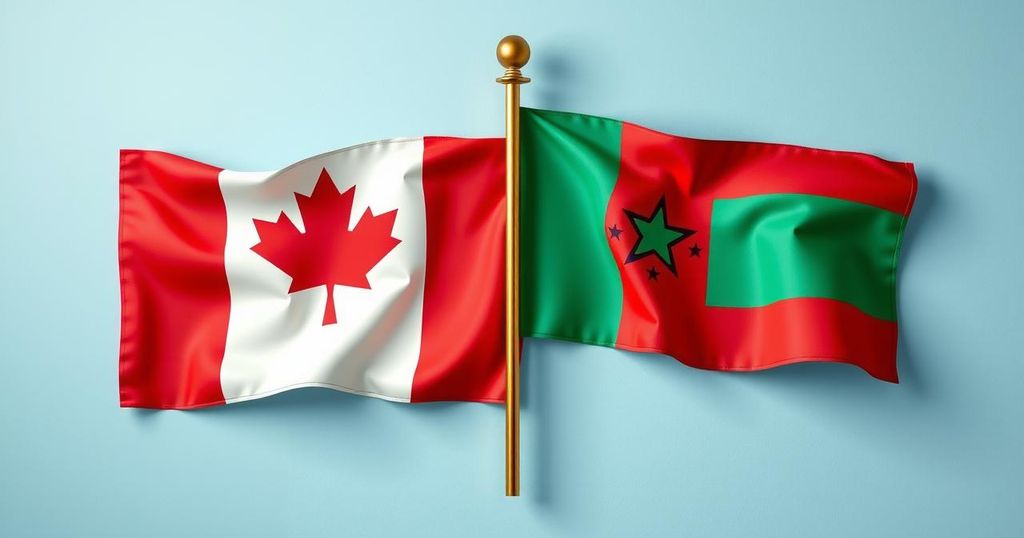Canada has resumed military co-operation with Ethiopia, reversing a three-year suspension due to genocide allegations. The renewal raises concerns from human rights advocates regarding ongoing abuses. Critics urge Canada to prioritize accountability before further engagement, amid rising tensions in the region and continued civilian casualties.
Canada has resumed military co-operation with Ethiopia, a decision taken despite serious allegations of genocide and other war crimes against the Ethiopian military during the Tigray conflict. This decision comes after a suspension of defense collaboration initiated three years ago in response to these abuses. The Canadian federal government has now reintroduced Ethiopia into the Military Training and Co-operation Program (MTCP), causing concern among human rights advocates regarding this renewed relationship and its implications.
The renewed military cooperation allows Canada to re-engage with Ethiopia, targeting areas of non-lethal support. An internal memo revealed discussions between Canadian officials and Ethiopian Defence Minister Aisha Mohammed, indicating a focus on supporting human rights accountability and transitional justice. Canadian officials expressed that the engagement could serve as leverage to address serious human rights concerns while acknowledging significant challenges, including ongoing civilian casualties due to military actions.
Concerns persist regarding the ongoing military operations in the Amhara and Oromia regions, where civilian casualties continue to be reported. The Ethiopian military has recently been implicated in drone strikes that resulted in significant loss of civilian life. Although air strikes have reportedly diminished, they remain a prominent threat. Furthermore, tensions are rising with Eritrea as Ethiopian troops have been seen mobilizing toward the border.
To mitigate these issues, Andrée-Anne Poulin from the Department of National Defence stated that the focus will be on “small-scale training activities,” asserting that reintegration into the MTCP could foster improvement within the Ethiopian Armed Forces. However, critics, including former justice minister Allan Rock, argued that Canada must hold Ethiopia accountable for past actions before resuming military ties. Rock emphasized the moral implications of supporting an army that has committed severe human rights violations.
The international community remains wary of the consequences of this decision. Sarah Teich and Kyle Matthews have called attention to the continued human rights abuses by the Ethiopian military, questioning the justification for Canada’s involvement. They advocate for a more cautious approach to engagement, underscoring the need for accountability and adherence to international humanitarian law.
Canada’s decision to restore military co-operation with Ethiopia raises numerous ethical and diplomatic questions, particularly regarding the commitment to human rights and the potential complicity in ongoing atrocities. The Canadian government must navigate these complexities while asserting a strategic presence in a geopolitically significant region.
In summary, Canada has rekindled military ties with Ethiopia despite longstanding allegations of genocide and ongoing human rights violations. This re-engagement is aimed at fostering peace and accountability but has been met with criticism from human rights advocates who call for accountability before any military collaboration. The situation remains precarious, as civilian casualties continue and regional tensions rise, warranting a cautious approach to Canada’s involvement with the Ethiopian military.
Original Source: www.theglobeandmail.com




